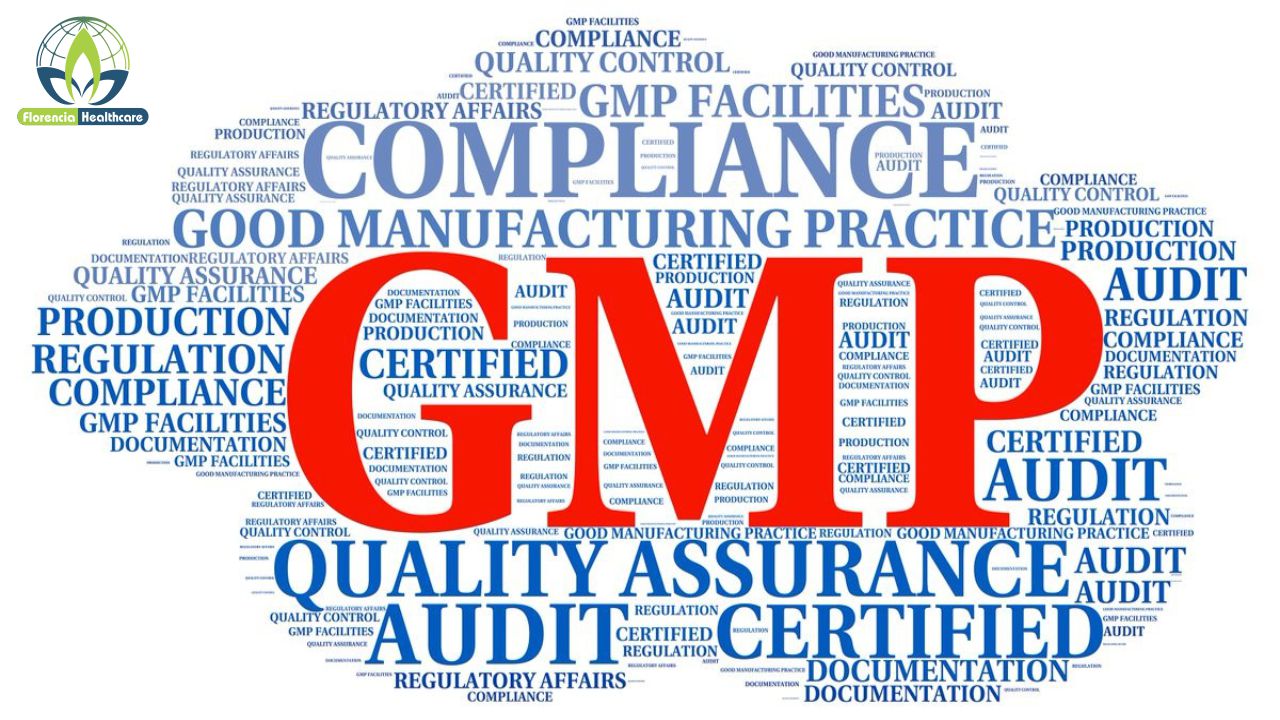The pharmaceutical industry’s constantly evolving nature emphasizes the crucial role of maintaining rigorous quality standards. It’s not just about meeting regulatory requirements but also about ensuring the safety, reliability, and effectiveness of medicines worldwide. Upholding these standards not only safeguards public health but also fosters trust and confidence in pharmaceutical manufacturers on a global scale.
One pivotal player in this realm is the World Health Organization’s Current Good Manufacturing Practices, a set of guidelines designed to guarantee the quality and consistency of pharmaceutical products on a global scale.
This discourse delves into the significant role that plays in augmenting the international standing of Indian pharmaceutical products.
As India emerges as a prominent hub for pharmaceutical manufacturing, the designation of a company as a WHO CGMP Manufacturer in India becomes a hallmark of excellence, signifying adherence to the highest standards of production, quality control, and regulatory compliance.
This exploration will navigate the key facets and how its incorporation into the fabric of Indian pharmaceutical practices not only ensures compliance with international benchmarks but also acts as a catalyst for elevating the credibility and trustworthiness of Indian pharmaceutical products on the global stage.
From regulatory nuances to the impact on market access, this examination seeks to unravel the intricate interplay between Current Good Manufacturing Practice and the burgeoning reputation of Indian pharmaceutical manufacturers.
Understanding WHO CGMP
Explore the pivotal role played by Current Good Manufacturing Practices in bolstering the global standing of Indian pharmaceutical products. Delve into the intricacies of compliance and quality standards set by WHO CGMP, as we unravel how manufacturers in India are aligning with these stringent guidelines. Gain insights into the transformative journey of becoming a certified manufacturer in India and discover how this accreditation is enhancing the reputation of Indian pharmaceuticals worldwide. Join us on a comprehensive exploration of the measures, advancements, and best practices adopted by Indian pharmaceutical manufacturers to ensure the highest quality and safety standards, positioning them as key players in the international market.
WHO CGMP Implementation in India
In the dynamic landscape of the industries like the pharmaceutical companies in India, the implementation of World Health Organization’s Current Good Manufacturing Practices holds paramount significance for manufacturers in India. This article explores the pivotal role played by elevating the global reputation of Indian pharmaceutical products.
Understanding the stringent quality standards set by the World Health Organization, Indian pharmaceutical companies are increasingly aligning their manufacturing processes with given guidelines. This proactive approach not only ensures compliance with international standards but also underscores the commitment to producing high-quality, safe, and efficacious pharmaceutical products.
The article delves into the various facets of implementation in India, emphasizing how adherence to these guidelines positively impacts the overall quality control measures within the pharmaceutical manufacturing sector. By adopting CGMP practices, Indian manufacturers are not only meeting regulatory requirements but are also fostering a culture of continuous improvement, innovation, and excellence.
The global recognition of WHO CGMP-compliant manufacturing facilities in India plays a pivotal role in boosting the credibility of Indian pharmaceutical products on the international stage. This recognition serves as a testament to the commitment of Indian manufacturers to ensuring product quality and patient safety, further solidifying the country’s position as a reliable CGMP manufacturer in India.
The case studies and success stories of Indian pharmaceutical companies that have successfully implemented WHO CGMP, showcasing how this commitment has translated into enhanced product quality, increased market share, and strengthened global partnerships. By examining these examples, the article aims to inspire other manufacturers to prioritize WHO CGMP implementation as a strategic initiative for not only meeting international standards but also thriving in the competitive global pharmaceutical landscape.
Improving Quality Standards
Embark on a comprehensive exploration of the pivotal role played by WHO CGMP (World Health Organization Current Good Manufacturing Practices) in fortifying the global reputation of Indian pharmaceutical products. This insightful discussion delves into the intricacies of adherence to WHO CGMP by manufacturers in India, shedding light on the transformative effects it has on the quality standards of pharmaceutical goods.
As the pharmaceutical landscape evolves, the significance of maintaining international quality benchmarks cannot be overstated.
This discourse navigates the landscape of WHO CGMP compliance among Indian pharmaceutical manufacturers, highlighting their commitment to producing products of exceptional quality and safety.
Discover how the stringent guidelines set forth by WHO CGMP act as a catalyst in bolstering the global standing of Indian pharmaceuticals.
WHO CGMP Manufacturer in India takes centre stage, emphasising the crucial link between adherence to these standards and the positive perception of Indian pharmaceutical products on the world stage.
Through an in-depth analysis, this exploration not only underscores the importance of WHO CGMP in shaping the narrative of quality assurance but also underscores the impact it has on fostering trust among consumers and stakeholders.
Global Recognition for Indian Manufacturers
Embark on a compelling exploration of the pivotal role played by WHO CGMP (World Health Organization Good Manufacturing Practices) in shaping and amplifying the global recognition of Indian pharmaceutical manufacturers.
This insightful discussion delves into the intricacies of adherence to WHO CGMP standards, illuminating how it serves as a cornerstone for the elevated reputation of pharmaceutical products originating from India.
Discover the journey of the modern Indian pharmaceutical industry as it aligns with WHO CGMP protocols, becoming synonymous with quality, safety, and efficacy on a global scale. Uncover the significance of being recognized as a WHO CGMP Manufacturer in India a testament to a commitment to excellence that transcends geographical boundaries.
As we unravel the narrative, we gain valuable insights into the positive impact of WHO CGMP compliance on the credibility and trustworthiness of Indian pharmaceutical products in the international arena. From stringent quality control measures to ethical manufacturing practices, witness how the adherence to WHO CGMP standards positions Indian manufacturers as global leaders in the production of pharmaceuticals.
Challenges and Solutions
Common challenges faced by manufacturers:
In the competitive realm of pharmaceutical manufacturing, WHO CGMP (World Health Organization’s Current Good Manufacturing Practices) compliant manufacturers in India encounter various challenges.
These include stringent regulatory requirements, evolving global quality standards, increasing production costs, and the constant need for innovation to meet dynamic market demands. Balancing these aspects while maintaining product quality and safety poses a significant challenge for WHO CGMP manufacturers in India.
Strategies to overcome challenges:
To overcome the challenges faced by WHO CGMP manufacturers in India, strategic approaches are crucial. Implementing robust quality management systems, investing in cutting-edge technology and automation, and fostering a culture of compliance and continuous training among the workforce are essential.
Establishing strong collaborations with regulatory bodies and industry experts can help navigate complex regulatory landscapes. Additionally, adopting sustainable practices, optimizing supply chain management, and embracing digitalization can contribute to operational efficiency and resilience in the face of challenges.
Continuous improvement initiatives:
Continuous improvement lies at the heart of enhancing the global reputation of Indian pharmaceutical products adhering to WHO CGMP standards. Manufacturers can focus on ongoing process optimization, regular audits, and proactive risk management to ensure compliance and maintain high-quality standards.
Embracing data analytics and artificial intelligence can aid in predictive maintenance and real-time monitoring, contributing to a culture of continuous improvement. Engaging in research and development activities to stay ahead of technological advancements and market trends is also vital for WHO CGMP manufacturers in India to uphold their global standing.
Future Prospects
In the dynamic landscape of the pharmaceutical industry, the evolving role of the World Health Organization’s Current Good Manufacturing Practices (WHO CGMP) plays a pivotal role in shaping the future prospects for Indian manufacturers. This comprehensive analysis explores the multifaceted impact of WHO CGMP standards on the pharmaceutical sector in India and delves into the anticipated benefits for manufacturers in the region.
Evolving Role of WHO CGMP in the Pharmaceutical Industry:
This section investigates the changing dynamics of the WHO CGMP standards and their profound influence on the pharmaceutical landscape. It discusses how adherence to these international quality benchmarks not only ensures the production of safe and effective drugs but also contributes to elevating the global reputation of Indian pharmaceutical products. The evolving role of WHO CGMP is examined in the context of its impact on manufacturing practices, quality control, and overall industry standards.
Anticipated Benefits for Indian Manufacturers:
Highlighting the specific advantages and opportunities that compliance with WHO CGMP standards brings to Indian pharmaceutical manufacturers. From gaining wider acceptance in global markets to fostering trust among international stakeholders, the discussion underscores how adherence to these stringent regulations can position Indian manufacturers as reliable and high-quality contributors to the global pharmaceutical supply chain.
Future Trends and Developments:
The final section delves into the future trends and developments expected in the realm of WHO CGMP for pharmaceutical manufacturers in India. Analyzing potential advancements in technology, regulatory frameworks, and international collaborations, this part offers insights into how the industry is likely to evolve. By staying ahead of these trends, Indian manufacturers can position themselves as frontrunners in the global pharmaceutical market, further enhancing their reputation on the world stage.
Conclusion
The conclusion of the research in Enhancing the Global Reputation of Indian Pharmaceutical Products underscores the pivotal significance of adhering to WHO CGMP standards for manufacturers in India.
This investigation has illuminated the profound impact that compliance with these stringent guidelines can have on the global perception of Indian pharmaceutical products.
As a WHO CGMP Manufacturer in India, companies are not only meeting international quality benchmarks but are actively contributing to the elevation of the nation’s standing in the global pharmaceutical landscape.
In summary, the findings highlight the symbiotic relationship between adherence to WHO CGMP and the enhancement of India’s pharmaceutical reputation on a global scale.
As Indian pharmaceutical manufacturers continue to prioritise and implement these rigorous standards, they play a crucial role in fostering trust, reliability, and excellence in the production of pharmaceuticals.
This, in turn, contributes significantly to positioning India as a key player in the international pharmaceutical market.
As a call to action for manufacturers to sustain and advance their commitment to WHO CGMP, thereby solidifying their role in elevating the global recognition and esteem of Indian pharmaceutical products.

